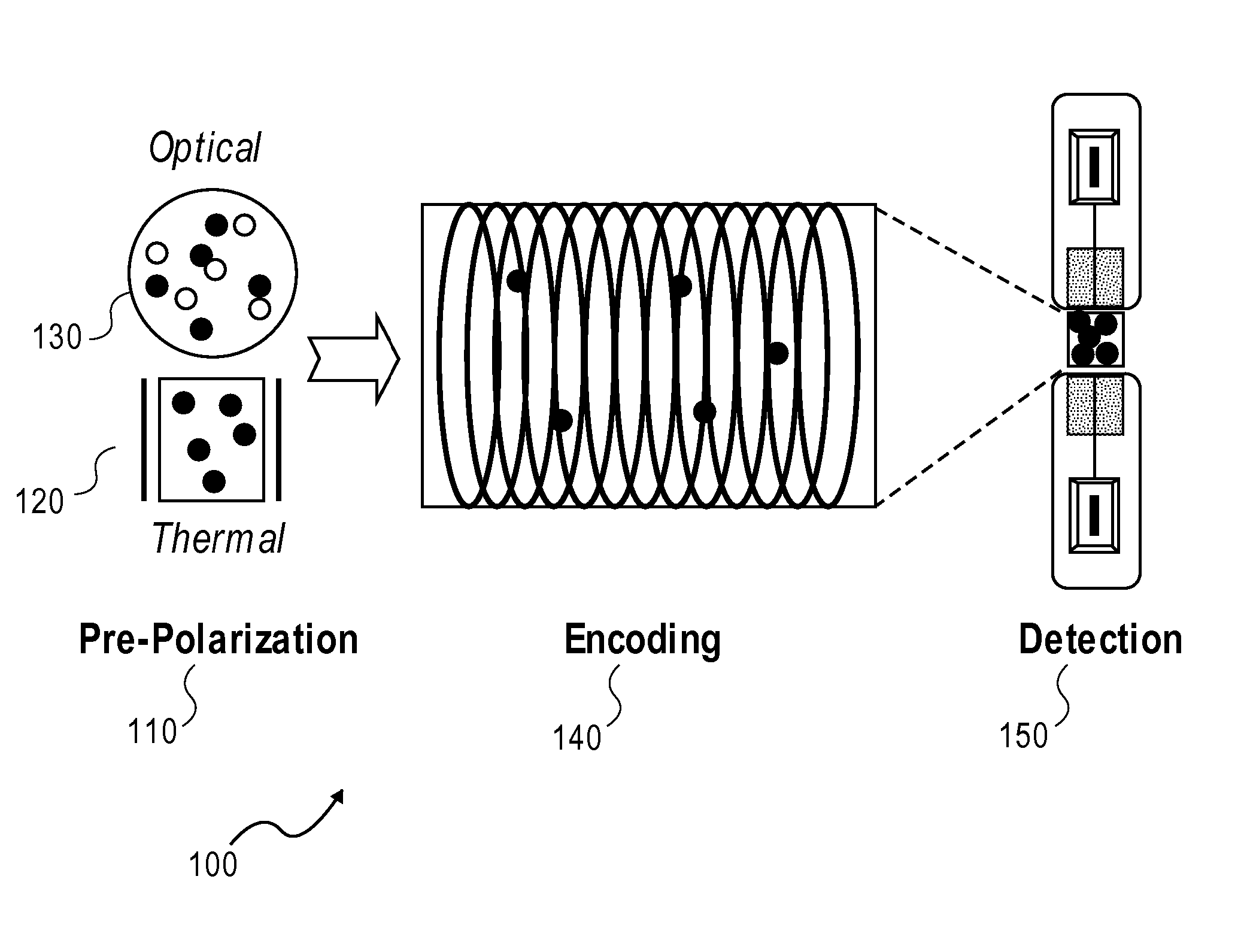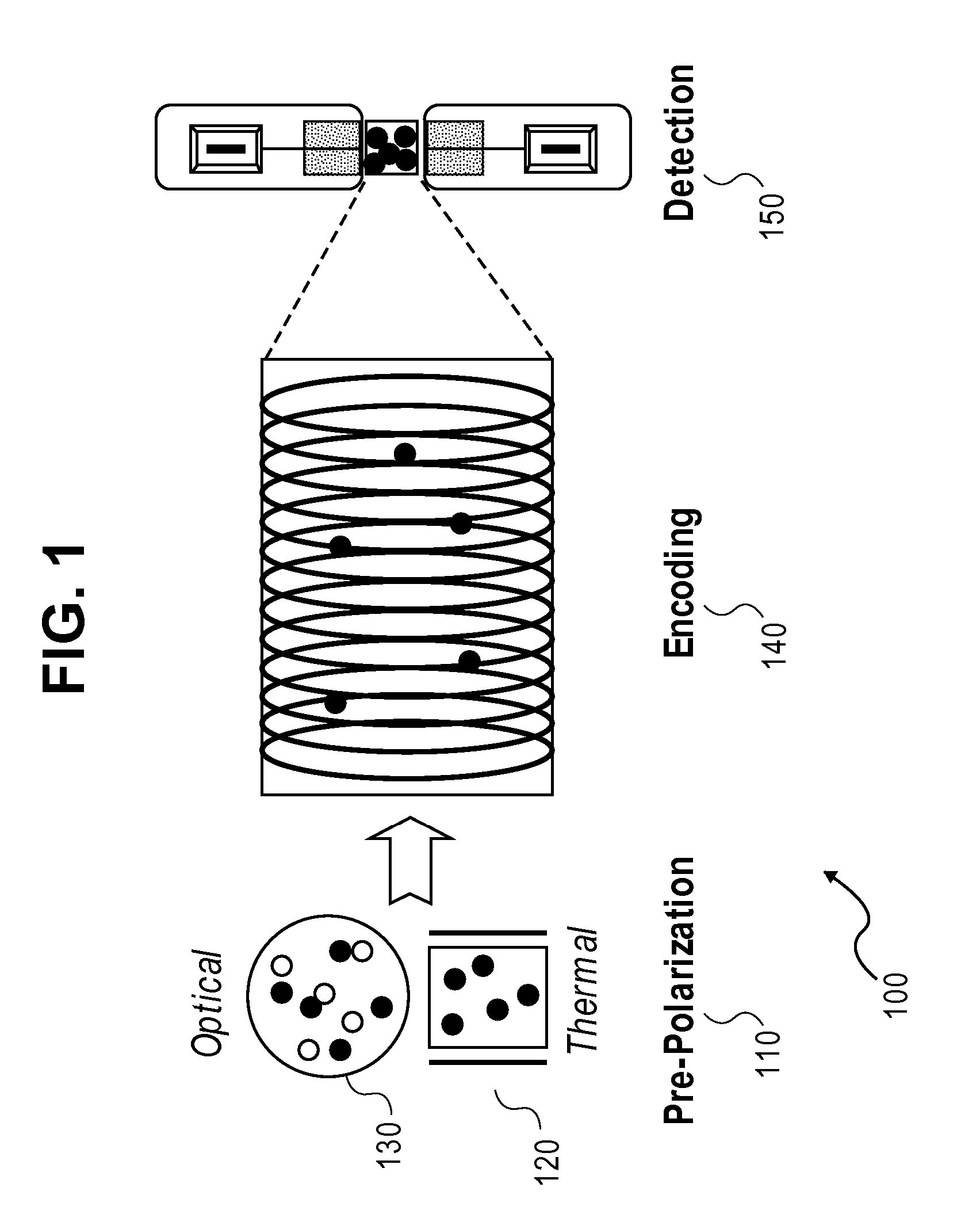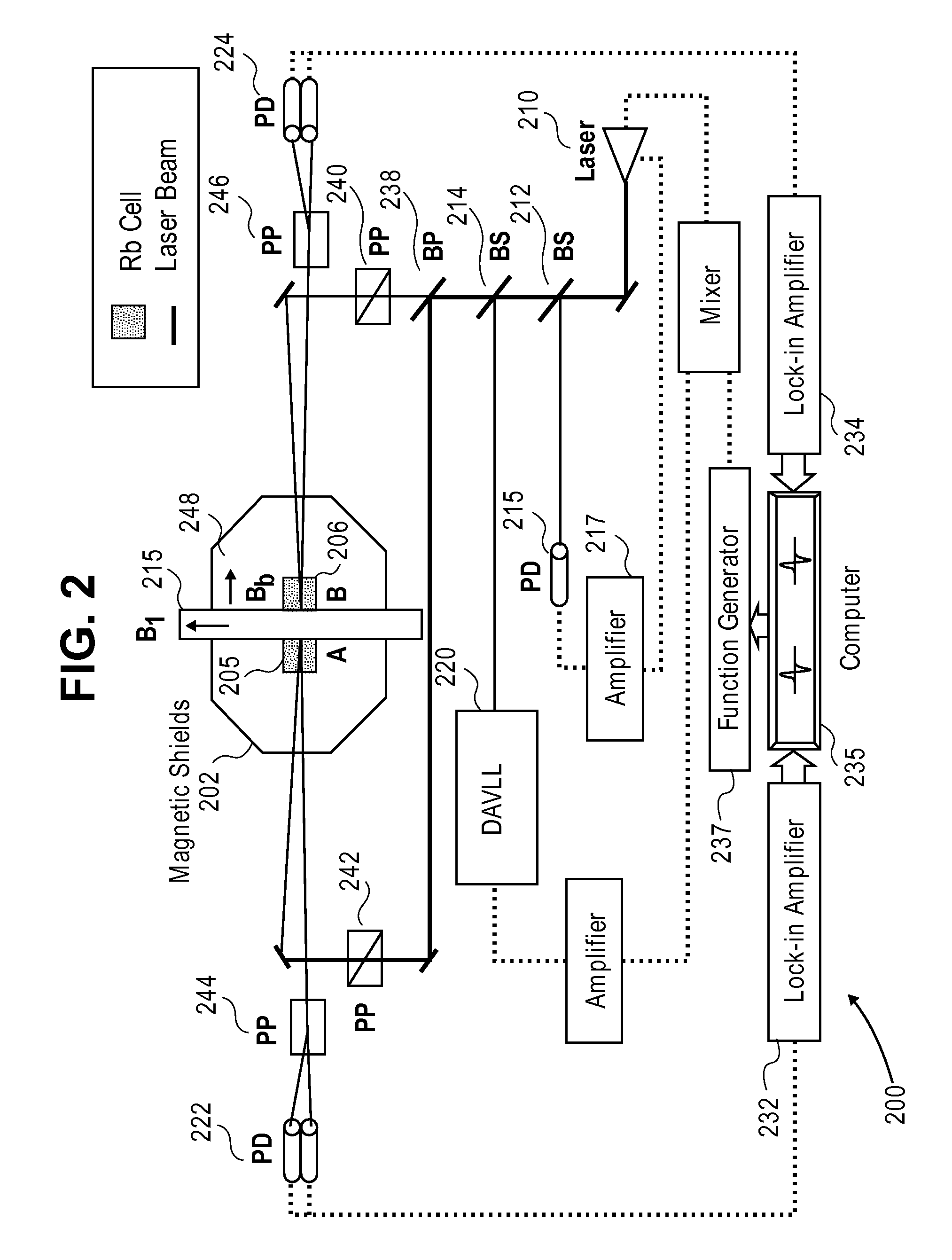Atomic magnetic gradiometer for room temperature high sensitivity magnetic field detection
a magnetic field detection and atomic magnetic gradiometer technology, applied in the field of high sensitivity magnetic field detection, can solve the problems of cumbersome thermal shielding between cryogenic squid and required cryogenic temperatures, and achieve the effect of reducing nois
- Summary
- Abstract
- Description
- Claims
- Application Information
AI Technical Summary
Benefits of technology
Problems solved by technology
Method used
Image
Examples
Embodiment Construction
Definitions
[0046]Alkali cell means an encapsulated sample of an alkali metal that generates an alkali-metal vapor, which is capable of detection of magnetic fields through changes in nonlinear magneto-optical rotation of a laser light polarization passing through the cell. Examples of such cells include, but are not limited to: cesium, rubidium, potassium, and sodium. Ideally, such cells are substantially isotopically pure.
[0047]Gradiometer means a set of at least two alkali cells in close proximity to a sample, such that common mode magnetization noise is rejected, thereby increasing the signal to noise ratio. For simple common mode rejection, just two cells may be used. For higher order mode rejection, more cells are used. Even more cells may be used for higher order mode rejection in two or three generally linearly independent dimensions.
[0048]Laser-based atomic magnetometer means a device capable measuring magnetic fields through the use of a laser. Ideally, the device is capabl...
PUM
 Login to View More
Login to View More Abstract
Description
Claims
Application Information
 Login to View More
Login to View More - R&D
- Intellectual Property
- Life Sciences
- Materials
- Tech Scout
- Unparalleled Data Quality
- Higher Quality Content
- 60% Fewer Hallucinations
Browse by: Latest US Patents, China's latest patents, Technical Efficacy Thesaurus, Application Domain, Technology Topic, Popular Technical Reports.
© 2025 PatSnap. All rights reserved.Legal|Privacy policy|Modern Slavery Act Transparency Statement|Sitemap|About US| Contact US: help@patsnap.com



